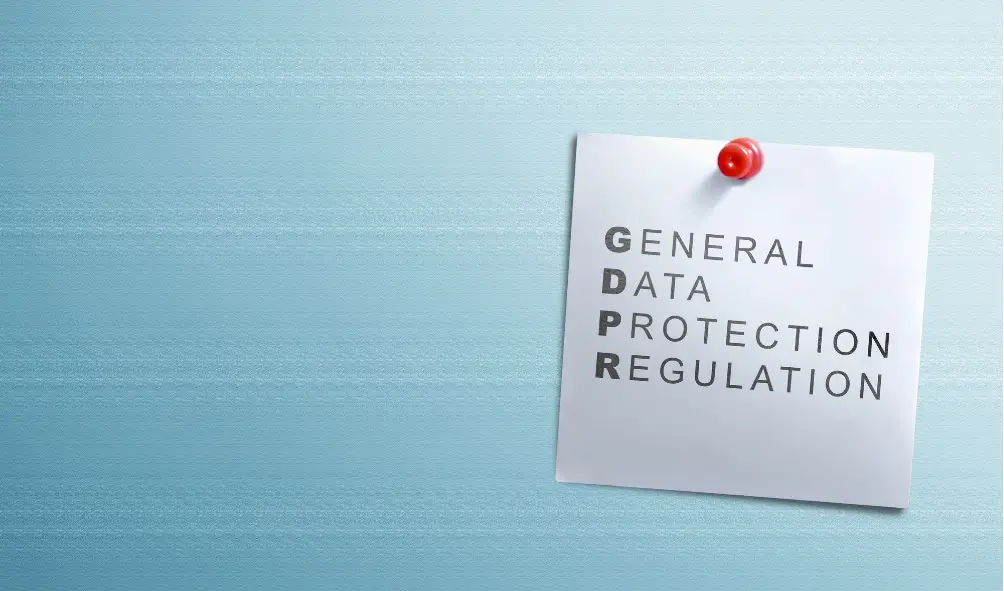
Safeguarding personal data has become more critical than ever. For UK businesses, especially those involved in IT services and cybersecurity, complying with the General Data Protection Regulation (GDPR) is essential. Not only is it a legal requirement, but it also fosters trust with customers and partners by demonstrating your commitment to data protection.
This comprehensive guide will help you understand what GDPR compliance means, its importance for businesses, and how IT and cybersecurity companies can ensure they stay compliant.
What is GDPR?
The General Data Protection Regulation (GDPR) is an EU regulation designed to protect the privacy and personal data of individuals within the European Union (EU). Although the UK has left the EU, the government has retained GDPR under UK law as the UK GDPR, with some adaptations. The regulation applies to any organisation that processes the personal data of EU or UK citizens, regardless of where the business is based.
GDPR aims to give individuals more control over how their personal data is collected, used, and stored. The regulation enforces strict data protection principles and imposes severe penalties for non-compliance.
Why is GDPR Compliance Important?
For businesses in the IT services and cybersecurity sectors, GDPR compliance is critical for several reasons:
- Legal Requirement: Failure to comply with GDPR can result in hefty fines of up to €20 million or 4% of your annual global turnover, whichever is higher.
- Data Protection: IT and cybersecurity companies handle vast amounts of personal data. GDPR compliance ensures that this data is handled securely, reducing the risk of breaches.
- Customer Trust: Consumers are increasingly concerned about how their data is used. Demonstrating compliance with GDPR shows that you take their privacy seriously.
- Reputation Management: A data breach or non-compliance can damage your reputation. GDPR compliance protects your business from the reputational harm associated with data misuse.
Key GDPR Principles
Before diving into how to ensure GDPR compliance, it’s essential to understand the key principles of the regulation. These principles are the foundation of GDPR and outline how businesses should handle personal data:
- Lawfulness, Fairness, and Transparency: Data must be processed lawfully, fairly, and in a transparent manner. Individuals must know how their data is being used.
- Purpose Limitation: Data should only be collected for a specific, legitimate purpose and not used for anything beyond that.
- Data Minimisation: Businesses should only collect the data they need and no more.
- Accuracy: Data must be kept accurate and up-to-date.
- Storage Limitation: Personal data should not be stored for longer than necessary.
- Integrity and Confidentiality: Data must be processed in a way that ensures security, including protection against unauthorised or unlawful processing and accidental loss or damage.
These principles serve as the cornerstone of GDPR compliance, and businesses must demonstrate that they adhere to these guidelines in all their data processing activities.
How Does GDPR Affect IT and Cybersecurity Companies?
As an IT services or cybersecurity company, your business is likely to handle sensitive personal data, either for your own operations or on behalf of your clients. Under GDPR, you are required to ensure that this data is processed securely and in accordance with the law.
Here are some specific areas where GDPR impacts the IT and cybersecurity sectors:
1. Data Processing Agreements
If your company processes personal data on behalf of other businesses (acting as a “data processor”), you must have Data Processing Agreements (DPAs) in place. These agreements outline your responsibilities under GDPR and ensure that both parties understand their obligations for data protection.
2. Incident Response and Breach Notifications
Cybersecurity companies must be prepared for data breaches, even with robust protections in place. Under GDPR, you are required to notify the relevant supervisory authority within 72 hours of becoming aware of a breach that affects personal data. If the breach poses a high risk to the rights and freedoms of individuals, those affected must also be informed.
Having a clear incident response plan is crucial to ensuring you can respond to breaches promptly and in accordance with GDPR regulations.
3. Data Encryption and Security Measures
One of the key elements of GDPR is ensuring the security of personal data. For IT and cybersecurity companies, this means implementing strong encryption protocols, firewalls, and other cybersecurity measures to protect sensitive information. GDPR emphasises data protection by design and by default, which means that security measures should be considered from the very beginning of any data processing activity.
4. Accountability and Documentation
Under GDPR, businesses are required to demonstrate compliance with the regulation. This means maintaining records of data processing activities, conducting regular audits, and ensuring that your employees are trained on GDPR principles. For IT services and cybersecurity companies, this may also involve conducting Data Protection Impact Assessments (DPIAs) for high-risk data processing activities.
Steps to Ensure GDPR Compliance for IT and Cybersecurity Companies
Now that you understand the importance of GDPR compliance, here are the steps your business can take to ensure you stay compliant:
1. Conduct a GDPR Audit
The first step towards GDPR compliance is conducting a thorough audit of your current data handling processes. This audit should cover:
- The types of personal data you collect and process
- How data is collected, stored, and used
- The legal basis for processing the data
- Who has access to the data
Identifying potential gaps in your processes will help you develop a plan for becoming fully compliant.
2. Appoint a Data Protection Officer (DPO)
Depending on the size and nature of your business, you may be required to appoint a Data Protection Officer (DPO). A DPO is responsible for overseeing your company’s data protection strategy and ensuring compliance with GDPR.
Even if you are not legally required to appoint a DPO, having someone dedicated to GDPR compliance can be beneficial, especially for businesses in the cybersecurity and IT services sectors.
3. Implement Data Protection by Design and Default
One of the key principles of GDPR is data protection by design and default. This means that privacy and data protection measures should be embedded into all of your business processes. For example:
- Encrypt personal data during storage and transmission
- Minimise the amount of data collected
- Ensure that personal data is only accessible to authorised individuals
By incorporating these principles into your operations, you can reduce the risk of non-compliance and protect personal data more effectively.
4. Obtain Clear Consent for Data Processing
If your business relies on consent as the legal basis for processing personal data, you must ensure that consent is given freely, specifically, and unambiguously. Consent requests should be clear and easy to understand, with individuals given the option to withdraw their consent at any time.
You should also keep records of when and how consent was obtained, as this will serve as evidence of compliance.
5. Train Employees on GDPR Compliance
Ensuring that your employees understand GDPR and their responsibilities is essential. Regular training should be provided to all staff members, especially those who handle personal data or are involved in cybersecurity efforts. This will help reduce the risk of human error and ensure that everyone is on the same page when it comes to data protection.
6. Prepare for Data Breaches
Even with robust cybersecurity measures, data breaches can still occur. Having a data breach response plan in place is crucial for responding quickly and effectively. Your plan should outline:
- How to identify and assess a data breach
- Who is responsible for managing the breach
- How to notify the relevant supervisory authority and affected individuals
Remember that under GDPR, you must notify the authorities within 72 hours of becoming aware of a breach. Failing to do so can result in penalties.
7. Regularly Review and Update Policies
GDPR compliance is an ongoing process, not a one-time task. Your data protection policies and procedures should be regularly reviewed and updated to ensure they remain compliant with GDPR and reflect any changes in your business operations.
This includes conducting regular audits, reviewing Data Processing Agreements, and staying up-to-date with any new regulations or guidance from the Information Commissioner’s Office (ICO).
The Role of Cybersecurity in GDPR Compliance
For businesses in the IT and cybersecurity sectors, GDPR compliance goes hand in hand with strong cybersecurity practices. Protecting personal data from unauthorised access, loss, or destruction is a key component of GDPR, and effective cybersecurity measures are essential for achieving this.
Here are some of the most important cybersecurity measures that can help your business stay GDPR compliant:
- Encryption: Ensure that personal data is encrypted both in transit and at rest to protect it from unauthorised access.
- Access Control: Implement strict access control measures to ensure that only authorised individuals can access personal data.
- Network Security: Use firewalls, intrusion detection systems, and other network security tools to protect your IT infrastructure from external threats.
- Incident Response: Develop a robust incident response plan to deal with potential data breaches quickly and effectively.
- Data Backups: Regularly back up personal data to ensure it can be restored in the event of a disaster or cyberattack.
Conclusion
Understanding and complying with GDPR is crucial for any UK business, especially those in the IT services and cybersecurity sectors. By following the steps outlined in this guide, you can ensure that your business is fully compliant with GDPR, protecting both your customers’ data and your business from potential fines and reputational damage.
If your business needs help with GDPR compliance or cybersecurity solutions, Cyber United can provide expert advice and services to keep your data. Contact us today to learn more and get your free consultation.
